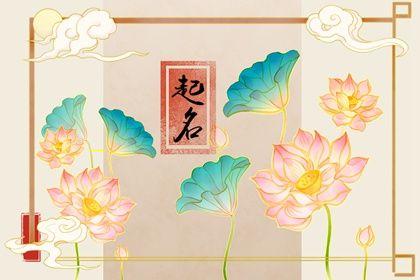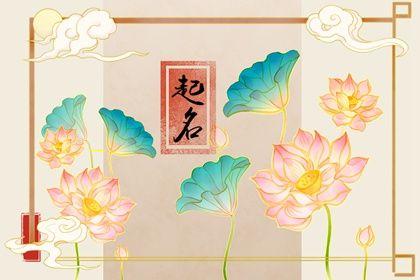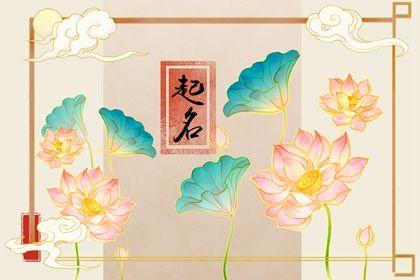如何为古琴合奏起一个出色的名字呢
- 作者: 马亦辰
- 来源: 投稿
- 2024-07-26
一、如何为古琴合奏起一个出色的名字呢
考虑古琴的特征和文化意义
古朴典雅:如“琴韵悠扬”、“古韵流芳”
空灵飘渺:如“天籁之音”、“云水禅心”
文人雅士:如“琴台雅集”、“高山流水”
结合合奏的主题或风格传统经典:如“丝竹合鸣”、“琴瑟和鸣”
现代创新:如“琴声新韵”、“古琴新篇”
特定曲目:如“高山流水合奏”、“渔舟唱晚合奏”
使用诗词歌赋中的意象自然风光:如“松风明月”、“流水高山”
人文情怀:如“知音难觅”、“高山仰止”
古琴意境:如“空山鸟语”、“流水潺潺”
借鉴古琴名曲或名家名曲:如“梅花三弄”、“渔舟唱晚”
名家:如“虞山派”、“广陵派”
其他创意建议使用拟人化手法:如“琴弦对话”、“古琴之舞”
结合合奏成员的特点:如“琴瑟相和”、“琴箫合鸣”
考虑合奏的场合或目的:如“雅集之音”、“琴会之乐”
示例琴韵悠扬,高山流水
天籁之音,云水禅心
丝竹合鸣,琴瑟和鸣
琴声新韵,古琴新篇
松风明月,流水高山
知音难觅,高山仰止
梅花三弄,渔舟唱晚
虞山之音,广陵之韵
琴弦对话,古琴之舞
琴瑟相和,琴箫合鸣
雅集之音,琴会之乐
二、如何为古琴合奏起一个出色的名字呢英语
How to Choose a Memorable Name for a Guzheng Ensemble
1. Reflect the Ensemble's Identity:
Consider the ensemble's musical style, repertoire, and mission.
Choose a name that captures the essence of the group's unique sound and artistic vision.
2. Use Evocative Imagery:
Employ words that evoke the beauty, tranquility, or power of the guzheng.
Consider metaphors or similes that paint a vivid picture of the ensemble's music.
3. Incorporate Cultural Elements:
Draw inspiration from Chinese history, mythology, or literature.
Use names that reference famous guzheng players, compositions, or cultural traditions.
4. Keep it Concise and Memorable:
Aim for a name that is easy to pronounce, remember, and visually appealing.
Avoid overly long or complex names that may be difficult to recall.
5. Consider the Ensemble's Goals:
If the ensemble plans to perform internationally, choose a name that translates well into other languages.
If the ensemble aims to promote a specific style or technique, incorporate that into the name.
6. Seek Feedback and Brainstorm:
Consult with other musicians, friends, or family members for suggestions.
Brainstorm a list of potential names and narrow it down based on feedback.
7. Examples of Memorable Guzheng Ensemble Names:
Celestial Melodies: Evokes the ethereal and enchanting sound of the guzheng.
Jade Phoenix: References the mythical bird associated with beauty and grace.
Silk and Strings: Captures the delicate and expressive nature of the guzheng.
Echoes of the Past: Highlights the ensemble's connection to traditional Chinese music.
Zenith Ensemble: Conveys the group's aspiration to reach the highest level of musical excellence.

三、如何为古琴合奏起一个出色的名字呢英文
How to Choose a Captivating Name for a Guqin Ensemble
1. Reflect the Ensemble's Identity:
Consider the ensemble's musical style, repertoire, and mission.
Choose a name that evokes the essence of the group's sound and purpose.
2. Use Poetic or Symbolic Language:
Draw inspiration from ancient Chinese poetry, mythology, or nature.
Select words that convey the ensemble's artistry, harmony, or connection to tradition.
3. Consider the Ensemble's Size and Composition:
If the ensemble is small, a concise name may be more suitable.
For larger ensembles, a more descriptive name can help distinguish them.
4. Avoid Generic or Overused Names:
Strive for originality and avoid names that are commonly used by other ensembles.
Consider using unique or uncommon words that resonate with the group's identity.
5. Test the Name's Pronunciation and Meaning:
Ensure that the name is easy to pronounce and understand.
Research the meaning of the name in both Chinese and English to avoid any potential misunderstandings.
6. Seek Feedback and Input:
Share the potential names with friends, colleagues, or mentors for their feedback.
Consider their perspectives and suggestions to refine the name.
Examples of Captivating Guqin Ensemble Names:
Echoes of the Ancients
Celestial Harmony
Whispers of the Silk Road
Jade Phoenix Ensemble
Song of the Seven Strings
Zenith of Guqin
Resonance of the Heart
Strings of Serenity
Ancient Melodies, Modern Interpretations
Guqin Virtuosi
四、如何为古琴合奏起一个出色的名字呢女生
优雅而诗意的名字琴韵流芳
弦音雅集
琴瑟和鸣
瑶琴合奏
琴心相印
体现古琴特色的名字
梧桐夜雨
松风流水
高山流水
渔樵问答
广陵散
寓意美好的名字
琴瑟相和
和谐之音
琴声悠扬
琴音绕梁
琴瑟之好
体现女性特质的名字
琴韵柔情
琴音婉转
琴声如诉
琴瑟相依
琴心如水
创意而独特的名称
琴弦上的舞者
琴音的对话
琴瑟之约
琴声中的故事
琴韵之美


